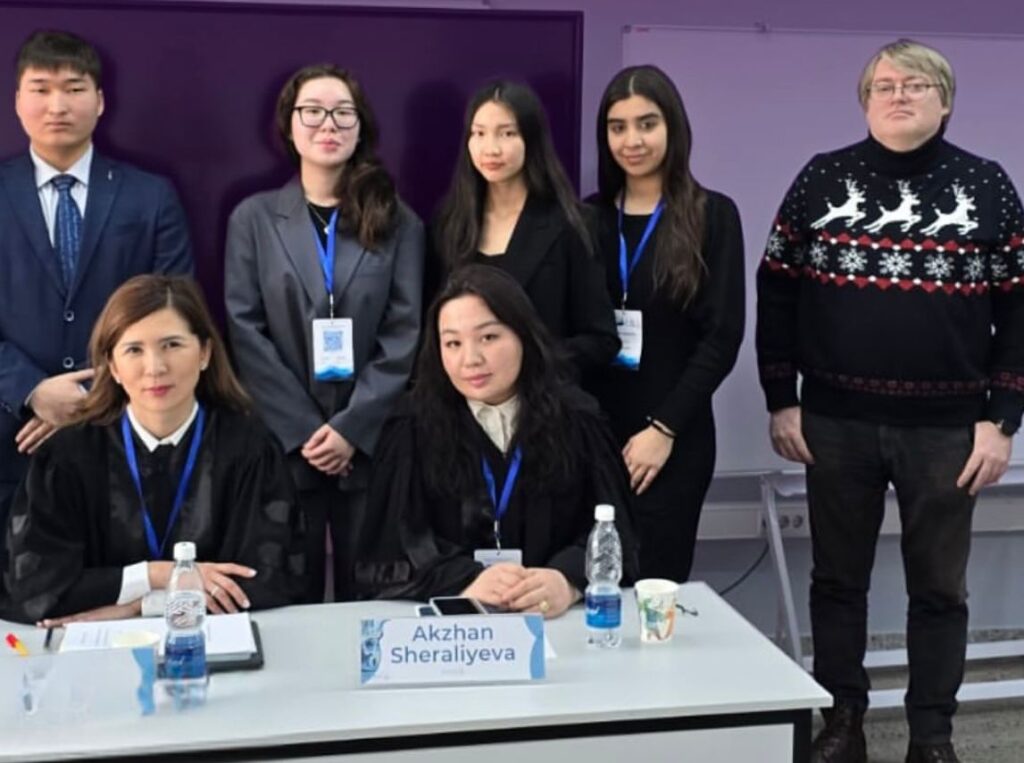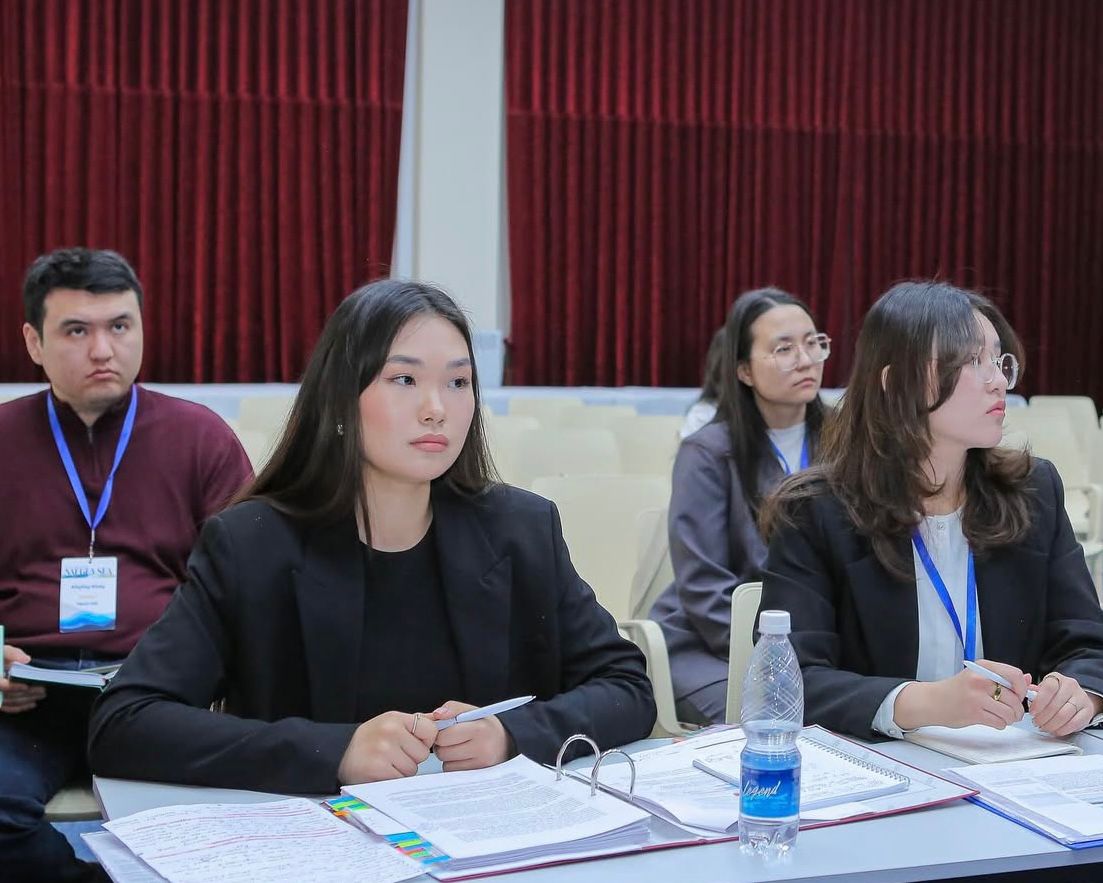KIMEP International Law students became the first since 2007 to attend an international legal event in Washington D.C. in April representing Kazakhstan in Moot Court.
Dilnaz Ryskulova, Diana Azizulla, Zhanel Akhmetova were the legal students who managed to earn a spot in D.C. after winning the regional competition earlier this year. In this competitive court, students act as attorneys for different nations and attempt to settle disputes. They were trained by professors from the same field, namely Dr.Sergey Sayapin and Sultan Sakhariev, assistant professor.
Work includes preparing two complicated memoranda for the plaintiff and the defendant. For this, they must understand different areas, read a huge amount of literature, process a large amount of material, understand the presentation of arguments, and then write them out from higher to lower priority, observe the logic in their decisions and at the same time not quarrel with each other.
“There were many conflicts, but it was important to resolve them in the moment,” said Ryskulova. “Conflicts arose when someone did not do something or did not do enough.”
The participants say there were quarrels among each other, not only during the preparation itself, but also during the international rounds.
In turn, coach Sayapin adopted a technique he saw the Ukrainian team using: Saying tongue twisters together. This sets a rhythm and restores team spirit.

The students and their coach said despite the coolness of the event and the opportunities it provided, it also caused a lot of stress, which led to the participants getting sick from time to time.
The factors that aggravated the preparation for the event could also include the students’ busy schedules, since some have jobs and classes that they need to finish. Students also said that during the preparation, two people left the team, which significantly increased the workload for those who remained.
However, Sayapin said despite the increased workload, the team coped better, because there is less interaction and therefore it is easier to manage the work.
“We met six days a week in the evenings and worked on the memorandum,” said Azizulla. “Sometimes we didn’t like something and we would remove 50 pages, completely redoing some parts.”
“To write the memorandum, we had to read a lot of literature, including materials provided by the moot court itself, books on international law written by our professors, UN documents, and even the Bible, literally,” Ryskulova said.
In addition to writing the memorandum, it was also important to be able to express one’s thoughts, the art of conducting a dialogue, and speaking measuredly.
“Thanks to such a comprehensive approach, a large base of soft skills is formed, namely the art of written and oral argumentation, dialogue in an official setting, which is very important for professional lawyers,” said Sayapin.
Some participants, in turn, were not so delighted, because it takes energy and puts you in a state of stress.
“When the first round began, there was fear of ‘what to say,’ especially when the opponents are versed in maritime law,” said Ryskulova.
Thus, one gets the impression of constant “nerve-wracking” and stress that occurred due to preparation.
“It’s all worth it,” said Dilnaz Ryskulova, adding, “for students, this is an opportunity not just to win, but to find good employers and be more competitive by listing participation in this moot court in their CV. The employees of the International Court of Justice shared their business cards without any problems, so this is a great platform to show that we are not rich people’s kids, but really smart ones.”
“It’s worth it at least because of the cool friendly impressions,” said Sayapin, who has coached two teams, and previously held the role as judge.
“Of course, it was worth all the effort,” Azizullah said. “Imagine going to another country and having friends there you can turn to about problems with sending mail or similar problems,” she added.

